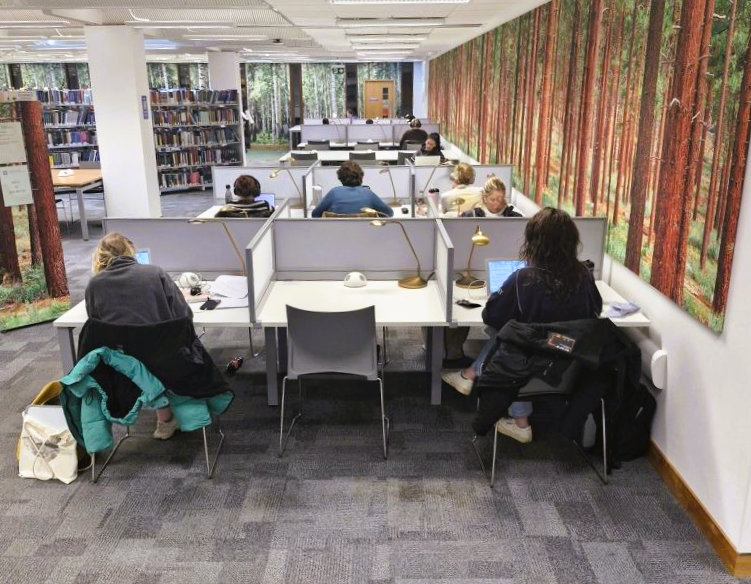Exams are just around the corner, and while it might feel like the pressure is mounting, don’t worry! With the right strategies, you can prepare effectively and head into your exams with confidence. To help you along the way, we’ve gathered five top study tips that will keep you organised, focused, and ready to tackle whatever your exams throw at you.

1. Create a Study Timetable – and Stick to It!
Planning is half the battle when it comes to revision. Take the time to create a study timetable that covers all your subjects and gives you plenty of time for review. Here’s how to make an effective plan:
- Break it down: Divide your revision into manageable chunks. Instead of cramming, focus on specific topics or chapters each day.
- Prioritise challenging subjects: Start with the areas you find most difficult, when you’re feeling fresh and motivated.
- Set realistic goals: Keep your targets achievable. For example, “Revise two chapters of Biology” or “Complete past paper on Statistics” are clear and manageable goals.
- Build in breaks: Make sure you include regular breaks in your plan! Short breaks between study sessions will help you stay focused and avoid burnout (more on that below).
Once your timetable is ready, do your best to stick to it. A bit of self-discipline goes a long way!
2. Find Your Ideal Study Environment
Where you study can have a big impact on how productive you are. Find a place where you can fully focus, whether it’s in the library, a study room, or a quiet corner at home. Here’s how to create the perfect study environment:
- Minimise distractions: Turn off social media notifications or use apps that block distracting websites during study time.
- Get comfortable, but not too comfortable: Make sure your desk and chair are set up properly so you’re not slouching or straining. Try to avoid studying in bed – it’s far too easy to drift off!
- Good lighting is key: A well-lit area helps avoid eye strain and keeps you alert.
Some people thrive in silence, while others need a bit of background noise. Figure out what works best for you, and stick to that environment. We have lots of choices in the Library.
3. Use Active Learning Techniques
Active learning is about engaging with the material, rather than passively reading and re-reading notes. These techniques can really help boost your revision:
- Teach it to someone else: If you can explain a concept clearly to a friend or family member, it’s a sign you’ve understood it.
- Practise past papers: Doing past papers or mock exams is one of the best ways to prepare. They’ll familiarise you with the exam format and timing.
- Use flashcards: Creating flashcards with key facts, definitions, or equations can help reinforce your memory. Quiz yourself or ask a study buddy to test you.
- Mind maps and diagrams: If you’re a visual learner, try summarising large amounts of information in a diagram or mind map. It helps identify links between ideas and concepts.
4. Stay Healthy – Fuel Your Body and Mind
Your brain is like a muscle, and just like any muscle, it needs the right fuel to perform at its best. During exam season, it’s vital to look after your physical and mental health. Here’s how to keep both in check:
- Eat brain-boosting foods: Include foods rich in Omega-3 (like salmon and flaxseeds), antioxidants (like blueberries and spinach), and whole grains to keep your energy levels steady. Try to avoid too much junk food or caffeine, which can lead to energy crashes.
- Stay hydrated: Drinking plenty of water helps improve focus, memory, and concentration. Aim to drink at least 6-8 glasses a day, and keep a water bottle on your desk as a reminder. Water taps are available in all our libraries.
- Get enough sleep: All-nighters might seem tempting, but sleep is essential for retaining information. Aim for 7-9 hours of sleep each night to keep your brain refreshed and ready to go.
- Exercise regularly: A quick walk or a bit of exercise can reduce stress and improve your concentration.
5. Take Breaks and Manage Stress
Studying is important, but so is taking breaks and avoiding burnout. Too much information at once can lead to stress, so give your brain time to rest and recharge. Here are some ways to manage stress:
- Try the Pomodoro Technique: This popular method involves studying for 25 minutes, then taking a 5-minute break. After four sessions, take a longer break. It’s a great way to stay productive without burning out.
- Get outside: A change of scenery can do wonders for your focus. A quick walk outdoors or some fresh air can help reset your mind and boost your concentration.
- Try meditation or mindfulness: A few minutes of deep breathing or using mindfulness apps (like Headspace or Calm) can reduce anxiety and help you refocus.
- Stay connected: While it’s important to focus on studying, don’t isolate yourself. Reach out to friends, chat with family, or arrange a group study session. Socialising can help ease the pressure.
Final Thoughts
Preparing for exams isn’t easy, but with the right study habits and a balanced approach, you’ll be in a great position to succeed. Plan well, look after yourself, and remember to keep things in perspective. Exams are important, but so is your well-being. You’ve got this! Best of luck with your revision, and don’t forget – you’re not alone, so reach out if you need help.